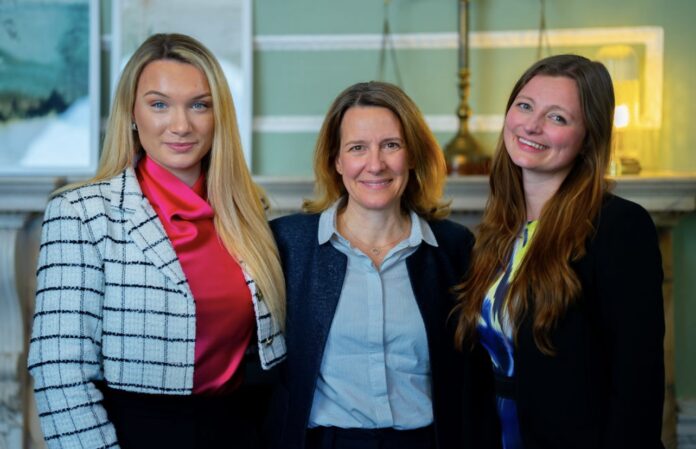Only 14% of care-experienced children attend university compared to 47% of young people. And 41% of care-leavers are not in education or employment compared to 12% of their peers.
That’s why a group of women who either have care experience or are experts in youth justice have joined together to launch a new mentorship organisation to help other budding lawyers who have been in care.
Lawyers Who Care CIC (LWC) launched on May 17 2024, and provides long-term mentorship, a community and paid work experience opportunities for care-experienced aspiring solicitors and barristers.
It will champion aspirational lawyers from care-experienced backgrounds and build an inclusive and diverse legal community. LWC seeks to overcome the specific barriers care-experienced people face when entering the legal profession and improve overall life outcomes for care leavers.
Erase the stigma and see our value in legal careers
Lucy Barnes, future pupil barrister and co-founder and CEO of LWC, was placed into a foster care arrangement when she was 13 and experienced first-hand the difficulties and challenges of becoming a barrister.
“I co-founded Lawyers Who Care CIC because I didn’t want others to experience the barriers I faced when entering the legal profession,” she said. “I did not have parental support, social capital, access to networking or financial assistance to support myself when undertaking unpaid work experience. Furthermore, people make assumptions about care-experienced people and fail to see us holistically as people who can bring unique skills and talents to the table. I want LWC to erase the stigma associated with being care-experienced and show that we can be lawyers too.”
Everyone deserves a chance
Kate Aubrey-Johnson, leading youth justice and children’s rights barrister is the co-author of the Dare to Care guide for criminal lawyers representing care-experienced young people.
She said: “I co-founded Lawyers Who Care CIC because every young person deserves the chance to pursue their dreams, and if a care experienced young person’s ambition is to become a lawyer, then they deserve the same chance to achieve their potential. The legal profession will be strengthened by the skills, talents and the diverse experience of care experienced people. We need to champion this talent and create a supportive community to nurture their potential and break down the stigma and structural barriers to them achieving career success.”
Adversity into an advantage
They are joined by Gemma Creamer as chief operations officer, a Bar Student currently studying to become a family barrister. She was awarded the John Bowater Memorial Award for her outstanding voluntary contributions to Law outside of education, including her commitment to improving the prospects of Children in Care coming into the legal profession.
Gemma shared her story with The Women’s Work Collective in 2021 and talked about her journey into Law and turning an adversity into an advantage.
Building a network
Lawyers Who Care also has a Steering Committee of care-experienced aspiring lawyers alongside an Advisory Committee of solicitors, barristers and care-experienced professionals.
The idea is to build legal networks for care leavers, bridge the lack of social capital that accompanies care experience, erase the stigma associated with care and demonstrate the unique gifts and talents that care-experienced people bring to the legal profession.
LWC launches in collaboration with care leavers and is supported by the Segelman Trust. Founding Members include Garden Court Chambers, Blackstone Chambers, East Anglian Chambers, Oliver Fisher Solicitors, Spire Barristers, 3 Verulam Building Chambers and Dawson Cornwell LLP.
A sense of community
Member organisations (chambers and firms) benefit from exclusive access to specialist care-aware and trauma-informed training, webinars, LWC support for mentors, LWC member-exclusive resources and guaranteed admission to LWC annual networking events.
LWC will also help budding lawyers with access to paid work experience opportunities, support with applications, interview advice and access to resources on understanding the legal profession and accessing financial and other support.
It aims to build a sense of community and belonging for care-experienced young people to feel seen in the legal profession for who they are, erasing stigma and empowering care-experienced aspiring lawyers to achieve successful legal careers.
To find out more, visit: www.lawyerswhocare.org.
